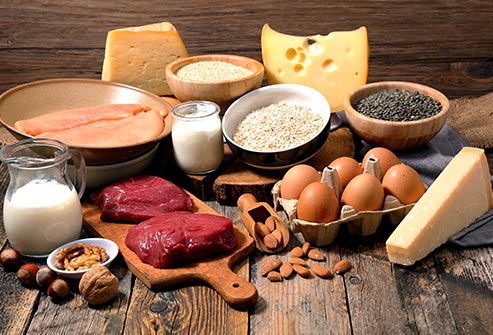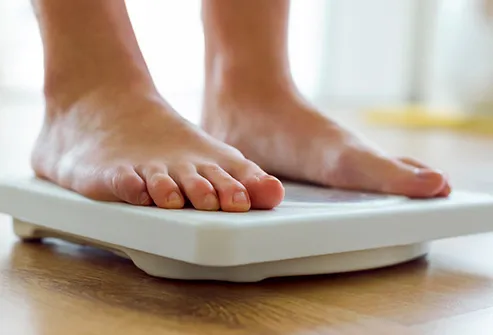OUR HEALTH ADVICE – Losing weight by eating fat and excluding sugar is the most surprising promise of the ketogenic diet. How does it work? Is it effective? We take stock.
Losing weight by eating fat is the most surprising promise of the ketogenic diet. Used for almost a century against certain forms of epilepsy, the ketogenic diet has gradually found a place alongside slimming diets. For some time he has enjoyed some success, as evidenced by the twenty books published in recent years and the many press articles that are frequently devoted to him. How does this diet work? What do we know about its effectiveness? The Figaro takes stock.
What is the ketogenic diet?

The National Food Safety Agency (ANSES) considers that for an adult, approximately 10 to 20% of energy must come from proteins, 35-35% of lipids (fat) and 40-55 % of carbohydrates (sugars). The ketogenic diet is based on a drastic reduction in carbohydrate intake (no more than 50 grams per day for an adult) in favor of a massive intake of fat (70 to 90% of the total energy intake), with a protein intake that remains at 15-20% of intake. Rather counterintuitive, in a world where fat holds the wrong role in the collective imagination.
Are forbidden foods based on cereals (bread, pasta, rice), potatoes, prepared dishes, sweets, cakes and milk (rich in lactose, which is a carbohydrate)? Some fruits and vegetables, too rich in carbohydrates (a banana provides about 30 grams of carbohydrates out of the required 50), are also to be avoided, as are legumes. On the other hand, you have to bet on all foods rich in fat and protein such as vegetable oils, butter, eggs, meat, fatty fish, avocado, coconut or oleaginous (almonds, Hazelnut…). “In practice, it’s a very difficult diet to follow,” says Professor Luc Cynober, head of the biochemistry department at Cochin Hospital (AP-HP) and author of All About Your Weight, Do not Take Risks! (Ed Michel Lafon).
How does it work?

To function, the body has three types of food fuels: carbohydrates, fats, and proteins. When carbohydrates are in a very small amount – as is the case with the ketogenic diet – the liver starts making ketone bodies from the dietary fat or fat stores of the body. It is said that the body is in “ketosis”: it turns into a machine to “burn” fat. Ketones become the main energy source for most of our cells. This change occurs on average between two and four days after the adoption of the plan.
Does the ketogenic diet help to lose weight?

“The problem with these extreme regimes is that there is a rebound effect. People often gain more weight than they lost in the first place. “
Pr Luc Cynober
“A drastic diet of this type is sure to lose weight,” says Dr. Cynober. “The individual can lose several pounds in a month. But the problem with these extreme regimes is that there is a rebound effect. People often gain more weight than they lost in the first place. ” The famous “yo-yo” effect, found in all diets.
“Work has shown that diets low in sugars can lose weight faster than diets low in fat. But in the long term, weight curves come together, “says Dr. François Jornayvaz, head of the diabetology unit at Geneva University Hospitals and author of several scientific articles on the ketogenic diet.
According to the doctor, it is necessary to distinguish this diet – where carbohydrates are practically eliminated – diets low in sugars. “We have reason to believe that diets moderately low in carbohydrates, which do not exceed 130 grams of sugars not day, could be beneficial, especially for diabetic patients,” he says. But we must be extremely careful about the type of fats consumed and prefer those of plant origin rather than animal, otherwise, there is a risk of developing a fatty liver (fatty liver) and hypercholesterolemia, with adverse effects in the long term. “
For the moment, even if the promises of the ketogenic diet extend (weight loss, but also cancer, Alzheimer’s disease, etc. …), it must be remembered that its effectiveness has been scientifically proven only in epilepsy.
Are there any side effects?
In the short term, switching from a traditional diet to a ketogenic diet can lead to nausea, constipation, fatigue, headaches, cramps, bad breath … So many inconveniences mainly related to dehydration. “With this diet, the body is forced to use its glucose reserves,” says Professor Luc Cynober. “In muscle, glucose is stored with water. Therefore, its use leads to the elimination of water which contributes to weight loss but also to dehydration.

This diet, which implies a decrease in the consumption of fruit and vegetables, may also lead to deficiencies. “There may be a deficit in vitamins, minerals, and fiber,” says Pr Cynober. Hence the need to seek advice from a dietician or a nutritionist before embarking on such an undertaking.
In the long term, the consequences are poorly understood. Most of the scientific work done to date involves a small number of participants and/or does not include a control group to compare. “The strongest data we have comes from children with epilepsy,” says Dr. Jornayvaz. “They show that there is, ultimately, risk of developing kidney stones, osteoporosis, and a growth disorder.”
“Man is programmed for balanced and omnivorous diets. Needless to say, stuffing the body with lipids by crowding out carbohydrates is probably not good for your health. “
Pr Luc Cynober
In a report on slimming diets published in 2010, the National Agency for Food Safety (ANSES) recalled that “the search for weight loss without formal medical indication involves risks, especially when practices are used. unbalanced and undiversified food, In addition, the Agency stressed that “nothing can replace, in terms of health, a balanced, diversified diet, ensuring that daily energy intake does not exceed needs.”
“The man is programmed for balanced and omnivorous diets”, recalls Professor Cynober. “No need to tell you that stuffing the body with fat by totally banning carbohydrates is probably not good for your health.”
